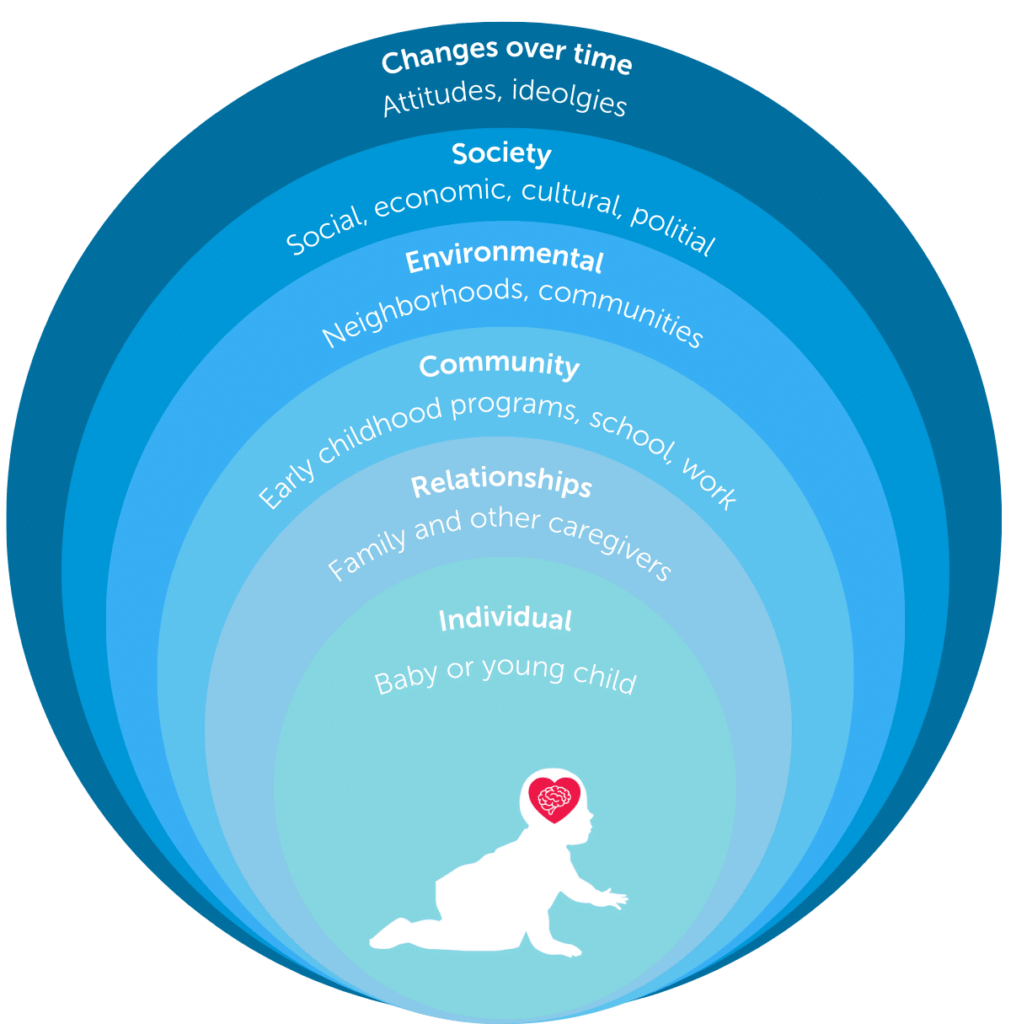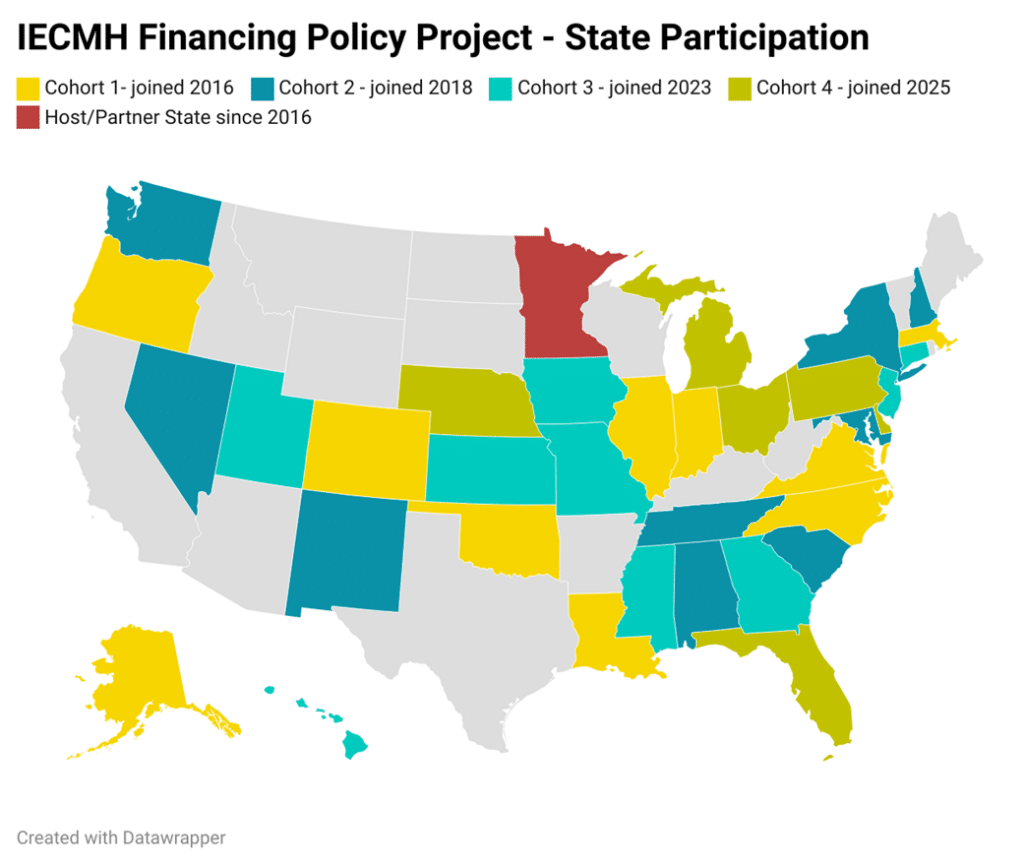
See how professionals across the early childhood field come together to support babies and families.


Senior Director, Professional Innovations, ZERO TO THREE

Senior PD Manager, Infant and Early Childhood Mental Health, Professional Innovations
The social-ecological perspective recognizes that child development is influenced by multiple levels of relationships and environments, from the individual child to society as a whole. This perspective is based on Urie Bronfenbrenner’s bio-socio-ecological framework and is central to the Infant and Early Childhood Mental Health (IECMH) Guiding Principles.

Babies and young children are entirely dependent on their caregivers for nurturing, protection, and meeting basic needs. Their early experiences shape their cognitive, social and emotional development. When young children feel safe and supported, they are more likely to build strong social-emotional skills, develop healthy relationships, and thrive.
Challenges at the Individual Level:
Protective Factors:
Caregivers, whether parents, extended family, or early childhood professionals, play a vital role in shaping a child’s development.
Challenges at the Relationship Level:
Protective Factors:
Challenges at the Community Level:
Protective Factors:
Safe and stable housing, green spaces, and strong social connections contribute to well-being.
Challenges at the Environmental Level:
Protective Factors:

See how professionals across the early childhood field come together to support babies and families.
Policies related to childcare, healthcare and economic security significantly impact child well-being.
Challenges at the Societal Level:
Protective Factors:
The COVID-19 pandemic, for example, changed work environments, family dynamics, and access to healthcare.
Examples of Changes Over Time:
Why This Matters:
There is no such thing as a baby. There is a baby and someone.
Dr. Donald Winnicott, pediatrician and psychoanalyst
The Infant and Early Childhood Mental Health Financing Policy Project (FPP) has become a powerful mechanism for advancing IECMH systems and policy across the country.

Babies and children are part of a complex system of relationships, environments, and societal influences. By understanding and addressing challenges at every level — from the individual child to national policies — we can create a world where every child has the opportunity to thrive.
As we continue our advocacy, professional development and policy work, the focus remains on ensuring that all babies and toddlers have a strong start in life.
What you can do:
By working together across all levels of society, we can create healthier, more supportive environments for our youngest learners and their families, laying the foundation for a brighter and stronger future for us all.
Join us in telling Congress to make babies and families a national priority.

|
Join us for the 2025 LEARN Conference in Baltimore this October! Early bird pricing ends July 14.
|